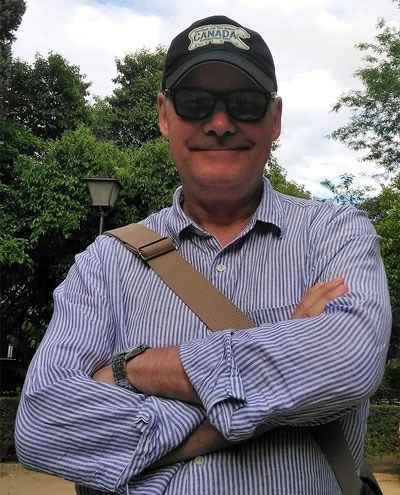Home / Museums, Heritage and Indigenous Culture / Q&A with instructor Richard Gerrard
Q&A with instructor Richard Gerrard
Instructor Richard Gerrard teaches our popular Collections Management (AHVS 488B) course.
 Why is cultural heritage important to you?
Why is cultural heritage important to you?
I've been privileged to work with a single collection for most of my career. I've helped shape it and promote it. But I am one of the latest in a long line of collection managers and curators, and, in turn there will be a line of people to take care of it when I am gone. It is this aspect of cultural heritage that I find important -- the continuity from the past into the future. It defines who we are, who we were, and ultimately who we will be.
What do you like about teaching?
I like the interaction with and among the students. Their questions force me to clearly articulate (at least I hope it's clear) my understanding of the subject under discussion. Often this leads me to learn new things and question my assumptions about a topic. I think it makes me a better teacher and heritage professional.
The CRM program provides a unique perspective because of its distance format. While emphasising Canadian case studies it draws on a broader perspective through the diversity of the students it attracts. I've had students from all parts of Canada, the US, Turkey, Australia, Ireland, Guiana, and more.
What do you do when you aren’t teaching?
My current title is 'Historian' for the City of Toronto's Museums and Heritage Services Unit. But I've done a lot of things for the City in my nearly 30 years here – archaeologist, registrar, material culture specialist, and curator. In addition I teach "Managing Archaeological Collections" for Wilfrid Laurier University, in Waterloo, Ontario.
When I am not teaching I like to travel. Recently I've fallen in love with Spain.
How did you end up in your career?
You might say it was a deliberate accident. As far back as I can remember I wanted to be an archaeologist. After university I worked as one under short-term contracts for many years. I happened to be running the archaeology lab at Fort York National Historic Site (one of the City of Toronto's museums) when a fulltime museum registrar's job came available with the City. I applied, not expecting to get it, and well, here I am 30 years later – still working with the fort's archaeology collections.
Any advice for our students?
Be brave, and say 'yes' when opportunities present themselves. You never know where they might lead.
Read. The amount of material available may seem overwhelming (and it is) but set time aside every day to scan what is going on. And read outside your specialization – it will give you a better perspective on the field.
Enjoy what you do. If you don't enjoy it, you are doing the wrong thing.
- Posted August 1, 2019
Visit Registration
2nd Floor | Continuing Studies Building University of Victoria Campus 3800 Finnerty Road | Victoria BC | CanadaTel 250-472-4747 | Email uvcsreg@uvic.ca
2026 © Continuing Studies at UVic
Legal Notices |
Sitemap

